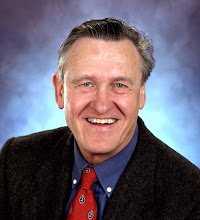by Herbert Grubel and Patrick Grady
Prime Minister Justin Trudeau recently announced large increases in carbon taxes to reach a new ambitious target for the reduction of Greenhouse Gas (GHG) emissions by 2030. The critical media reaction to this announcement focused on the economic burden that the policy will impose on Canadians, the amount of global warming it will prevent, and the chances that the tax will actually be adopted by future governments.
Absent from the discussion, however, was any
mention of how current immigration policies will increase the effort needed to
reach this target. Based on experience, these policies will add three-quarters
of a per cent to Canada’s population every year so that in 2030, all else being
equal, the country’s population and total GHG emissions will be 7.5 per cent
above what they would have been otherwise. This gap will be much larger by
2050, the year the government has promised to reduce emissions to net-zero as
required by the Paris accord.
Supporters of current immigration policies are
likely to argue that the higher emissions will not require higher taxes on
non-immigrant Canadians to attain the zero targets since the immigrants will
raise national income and the tax base proportionately to the added cost of
emission control measures.
That would be true if immigrants on average paid
the same amount of tax as the average non-immigrant. In fact, they do not. As
we have shown, using data published by Statistics Canada, recent immigrants on
average have lower incomes and pay less tax than other Canadians, which means
the latter will have to bear a larger fiscal and economic burden than they
would in the absence of the immigrants.
If the higher tax and
economic burden of emission control measures were to cause voters to elect
governments that reduced the intensity of these measures, that would reduce
progress toward net-zero. But migration also has more direct effects on
emissions. Consider a migrant from India, where according to data from the World Bank for 2016, the average emission of CO2 (which represents
about 80 per cent of all GHG emissions) was 1.82 metric tons per year. In
Canada, the average was 15.09 metric tons. As a result, after this migrant
settled in Canada global emissions would increase by 13.27 metric tons per year.
The size of this effect
created by all of Canada’s immigrants is determined by the average emissions in
their country of origin as well as the numbers of immigrants from each of these
countries. Using CO2 emissions data for 2016 from the World Bank, and Immigration, Refugees and
Citizenship Canada data on the sources of immigrants, we estimate that in
2017 the increase in global emissions was 11.33 metric tons per immigrant and
that the 286,000 immigrants admitted in that year added a total of 3.25 million
metric tons to global emissions and will add 97.4 million more metric tons over
the remaining 30 years of their assumed lifespan. These figures are just for
the immigrants who arrived in 2017, but they also are relevant for immigrants
arriving in future years in numbers that according to the latest government
plans will increase substantially.
All the above calculations
are based on assumptions that others may question and wish to change, including
the assumption that immigrants are average carbon-producers both in the
countries they leave and when they get to Canada. That almost certainly is not
exactly true, though with existing data more precise assumptions and estimates
are not possible. In any case, we are confident that such changes would not
alter our basic conclusion that immigrants will add considerably to Canada’s
contribution to the global stock of CO2 emissions. Given the low average
incomes and tax payments of immigrants, elimination of these added emissions
will raise taxes and cause economic dislocations that fall primarily on
non-immigrant Canadians.
As mentioned, these increased burdens may well lead to future
governments being elected on the promise to reduce or possibly even eliminate
the carbon taxes that have been imposed recently. If that happens, Canada’s
immigration policies will have resulted in a permanent addition in the stock of
CO2 in the atmosphere and raised the risk of costly global warming. This
problem can be avoided, however, if the government sets much lower target
numbers for immigration and focuses more on admitting workers with needed
skills rather than dependents and family members.
In the end, and as it should be, voters will decide
whether they want the government to change immigration policies or whether they
are willing to accept higher costs to gain the alleged benefits of mass
immigration. But voters are entitled to be informed about the costs involved in
these choices. The ministers of immigration and environment should take
responsibility for providing this information to Canadians — and to Prime
Minister Trudeau before he sets off on another pilgrimage to an international forum
to talk about his government’s commitment to eliminate CO2 emissions or
increase immigration.
Herbert Grubel,
formerly MP for Capilano-Howe Sound, is an emeritus professor of economics at
Simon Fraser University. Patrick Grady is with global-economics.ca.
This study has been published by the Financial Post
on January 23, 2021 at https://financialpost.com/opinion/opinion-immigration-may-make-global-net-zero-harder
.jpg)